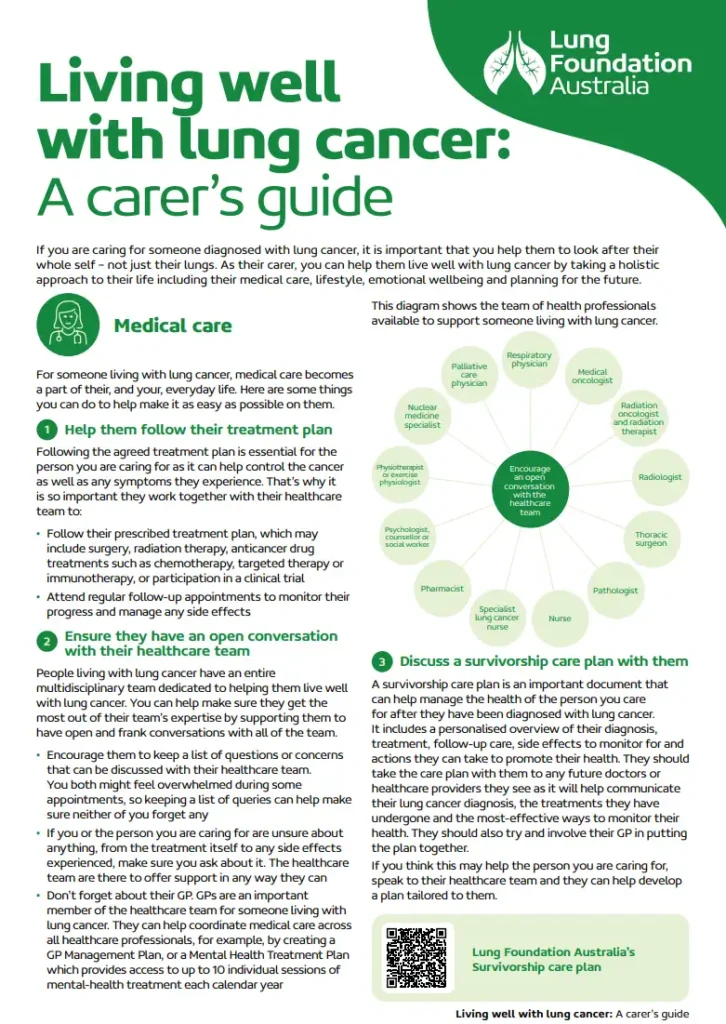Supporting a loved one diagnosed with lung cancer can be an emotionally challenging journey, yet your role as a caregiver is fundamental to their overall well-being. Adopting a holistic approach can be invaluable. This approach encompasses addressing their medical needs, making lifestyle adjustments, promoting emotional health, and planning for the future, all of which contribute to enhancing their overall quality of life.
Firstly, assisting them in adhering to their treatment plan is crucial. This plan may involve various medical interventions, such as surgery, chemotherapy, or immunotherapy. Encourage them to attend all follow-up appointments, ensuring they feel supported and empowered during these visits. Help them prepare a comprehensive list of questions to discuss with healthcare providers, addressing their concerns regarding side effects, treatment efficacy, and any lifestyle changes that may be necessary.
Creating a survivorship care plan is an excellent step in ensuring continuity of care. This comprehensive document should clearly outline their diagnosis, treatment history, follow-up care needs, and health monitoring guidelines. It’s important to share this plan with any new healthcare professionals they encounter to facilitate coordinated care. Supporting your loved one in maintaining a strong relationship with their general practitioner (GP) is also essential, as the GP plays a pivotal role in ongoing health management.
In addition to medical support, lifestyle changes may be necessary to boost their overall well-being. If your loved one smokes, consider gently encouraging them to quit. Highlighting that it’s never too late to stop can inspire them to take that step. Additionally, help them avoid second-hand smoke and limit their exposure to poor air quality, which can worsen their condition.
Physical activity is another key area to focus on. Regular exercise can significantly improve strength, reduce fatigue, and enhance quality of life. Before starting any new exercise routine, consult with their healthcare team to ensure it’s safe and beneficial. Programs like pulmonary rehabilitation can provide structured support for enhancing physical fitness.
Nutrition plays a vital role in the healing journey, so guide them to focus on a balanced diet filled with nutritious foods that promote recovery. Discuss the importance of hydration and consider consulting with a nutritionist if needed.
Finally, emotional health should not be overlooked. Encourage open discussions about their feelings and fears and offer comfort and understanding. Every experience with lung cancer is unique, so patience and empathy are key. Together, navigating this journey while prioritising a fulfilling life can foster resilience and hope for both of you.
Was this page helpful?
Good job! Please give your positive feedback
How could we improve this post? Please Help us.
